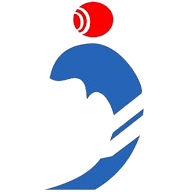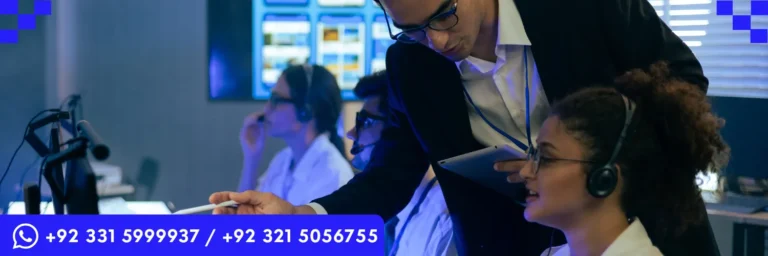The OSHAA 30‑Hours Diploma in Child Psychology and Development is a comprehensive program designed to provide learners with a strong foundation in understanding how children grow, think, feel, and interact with the world around them. This course explores the key stages of child development, from infancy through adolescence, and examines the psychological, emotional, social, and environmental factors that shape a child’s growth.
Learners will gain insights into developmental theories, cognitive and emotional milestones, behavioral patterns, and language acquisition. The program also emphasizes the importance of early intervention, observation, and ethical practices when working with children. By combining theory with practical applications, this diploma equips participants with the skills to identify developmental delays, support children with special needs, and foster healthy development in diverse settings.
This qualification is ideal for aspiring child psychologists, educators, caregivers, and professionals working with children. It enhances both knowledge and practical skills, enabling learners to contribute positively to children’s well‑being, learning, and overall development.
Course Overview
- Qualification Title: OSHAA 30‑Hours Diploma in Child Psychology and Development
- Awarding Body: OSHAA
- Total Units: 05 Units
Course Study Units
- Introduction to Child Psychology and Developmental Theories (3 Hours)
- Cognitive Development from Infancy to Adolescence (3 Hours)
- Emotional and Social Development in Children (3 Hours)
- Behavioural Patterns and Influencing Factors (3 Hours)
- Language Acquisition and Communication Skills Development (3 Hours)
- Impact of Family, School, and Social Environments on Child Development (3 Hours)
- Identifying Developmental Delays and Special Needs (4 Hours)
- Early Intervention and Support Strategies (3 Hours)
- Observation, Assessment, and Record‑Keeping in Child Psychology (3 Hours)
- Ethical and Professional Practices in Working with Children (2 Hours)
Course Learning Outcomes
Unit 1: Introduction to Child Psychology and Developmental Theories
- Understand major theories of child development
- Explain the role of psychology in understanding children’s growth
- Identify stages of physical, cognitive, and emotional development
Unit 2: Cognitive Development from Infancy to Adolescence
- Describe key milestones in cognitive growth
- Analyze how children learn, reason, and solve problems
- Apply strategies to support cognitive development
Unit 3: Emotional and Social Development in Children
- Recognize stages of emotional growth
- Explain the role of social interactions in development
- Support children in building healthy relationships
Unit 4: Behavioural Patterns and Influencing Factors
- Identify common behavioral patterns in children
- Analyze environmental and psychological influences on behavior
- Apply positive behavior management strategies
Unit 5: Language Acquisition and Communication Skills Development
- Explain stages of language development
- Support children in developing communication skills
- Recognize speech and language difficulties
Unit 6: Impact of Family, School, and Social Environments on Child Development
- Assess the role of family and caregivers in development
- Evaluate the influence of school and peers
- Understand the impact of cultural and social environments
Unit 7: Identifying Developmental Delays and Special Needs
- Recognize signs of developmental delays
- Differentiate between typical and atypical development
- Recommend appropriate support strategies
Unit 8: Early Intervention and Support Strategies
- Explain the importance of early intervention
- Apply strategies to support children with special needs
- Collaborate with families and professionals for child support
Unit 9: Observation, Assessment, and Record‑Keeping in Child Psychology
- Conduct structured observations of children
- Apply assessment tools to track development
- Maintain accurate and ethical records
Unit 10: Ethical and Professional Practices in Working with Children
- Understand ethical responsibilities in child psychology
- Apply professional standards when working with children
- Ensure confidentiality and child safeguarding
Course Benefits
This diploma provides learners with both theoretical knowledge and practical skills to understand and support children’s development. It prepares participants for roles in education, childcare, and child psychology.
Key Benefits:
- Gain a recognized qualification in child psychology and development
- Develop skills to identify and support developmental needs
- Enhance career opportunities in education, childcare, and psychology
- Learn practical strategies for observation, assessment, and intervention
- Contribute to children’s well‑being and holistic growth
Ideal Learner
This course is designed for individuals who want to deepen their understanding of child development and psychology. It is particularly suitable for those working with or aspiring to work with children.
Ideal candidates include:
- Teachers and Educators
- Childcare Providers and Caregivers
- Social Workers and Counselors
- Parents and Guardians seeking professional knowledge
Entry Requirements
To ensure learners can fully benefit from this qualification, certain entry requirements are recommended.
Requirements include:
- Basic understanding of child development concepts (preferred but not mandatory)
- Proficiency in English for study and assessment purposes
- Interest in working with children and supporting their growth
Who Can Enroll
This diploma is open to a wide range of learners who want to enhance their knowledge and skills in child psychology.
Eligible participants include:
- Students aspiring to careers in psychology or education
- Professionals in childcare, teaching, or social services
- Individuals seeking to support children’s development in personal or professional contexts
Future Progression
Completing this qualification opens pathways to advanced studies and professional roles in child psychology, education, and social care. Learners can progress to higher‑level diplomas, degrees, or specialized certifications.
Progression opportunities include:
- Advanced Diploma in Child Psychology
- Bachelor’s or Master’s Degree in Psychology or Education
- Careers as Child Psychologists, Educational Counselors, or Development Specialists






